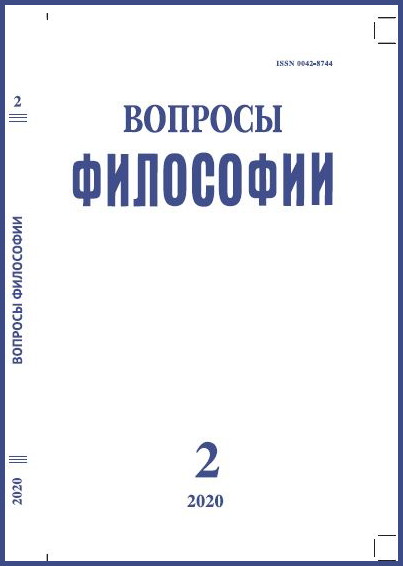Anti-Huizinga: a different philosophy of the game
DOI:
https://doi.org/10.21146/0042-8744-2020-2-196-204Keywords:
J. Huizinga, game, creativity, adventure, foolery, leisure, modality, activity, enthusiasm, ecstasy, altered states of consciousness, dance.Abstract
The article demonstrates the fallacy of analogies on the basis of which J. Huizinga builds a concept of the game as universal in the world. For a positive presentation of the new concept, the concept of the game is subjected to logical and ontological analysis, new materials from the history of culture: in particular, the importance of the institute of the harem for the formation of the phenomenon of playing leisure and, accordingly, the archetype of the game. Analysis of ecstatic practices in culture allows to clearly distinguish between the game and its various similarities.
Downloads
Published
2020-02-29
Issue
Section
Letters to Editors
How to Cite
[1]
2020. Anti-Huizinga: a different philosophy of the game. Voprosy Filosofii. 2 (Feb. 2020), 196‒204. DOI:https://doi.org/10.21146/0042-8744-2020-2-196-204.

